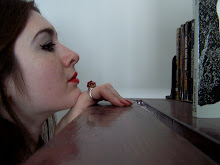The discovery of a long-lost modernist masterpiece sparks an exploration of art, identity and truth in Eternal Hydra at the Buddies in Bad Times Theatre in Toronto.
The eponymous book was authored by the fictional Gordias Carbunkle. His character and book are based on James Joyce; unfortunately, the play too frequently tips its hat to Joyce’s style. It’s long and the plot jumps back and forth in time and place, between the characters’ reality and passages from the book. There are plenty of high ideas floating around about the nature of art, truth and morality, including a subplot about racism that feels awkwardly tacked on. But the ideas, while compelling, don’t quite connect with the plot or the audience.
The play starts well. An obsessive scholar, Vivian Ezra (Liisa Repo-Martell), presents her closely guarded prize to a publisher. It’s the legendary book Eternal Hydra, penned by the fictional modernist Gordias Carbunkle (David Ferry) 70 years ago. Vivian has brooded over the manuscript for six years, annotating and footnoting all 99 dense chapters. So extreme is her devotion that she believes the spirit of Carbuncle speaks to her and lives with her. Carbunkle appears onstage with her. The other characters only interact with him during scenes from Gordias’ life or novel.
The plot starts to go off the rails somewhere during the second act. Playwright Anton Piatigorsky is trying to look at modernism through post-modernism eyes. The result is that as each character tells their unique part of the story, plot threads are picked up and dropped far too quickly.
The same set is used throughout the play: an oblong table, four chairs, two benches. It functions effectively as a board room, Vivian’s office, Carbunkle’s Paris flat, and a cobbler’s workshop in 19th century New Orleans.
The actors are excellent, despite unconvincing Irish and Creole accents. This is a workshop production, according to director Chris Abraham, with new lines being added and others removed after each performance. The changes didn’t seem to faze the cast. Even when the plot dragged they kept the audience’s attention with subtly nuanced performances.
The play debuted in 2002 as a one act show at the Stratford Festival.
Eternal Hydra’s big ideas get a bit lost in the shifting points of view and plot twists. It’s a work in progress, and it feels like one. Piatigorsky and Abraham haven’t slain their hydra yet.

No comments:
Post a Comment